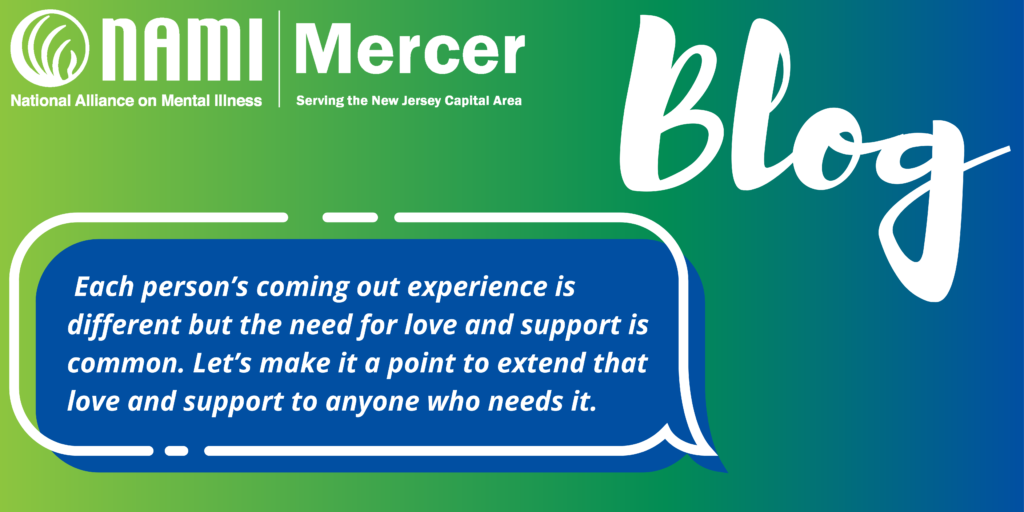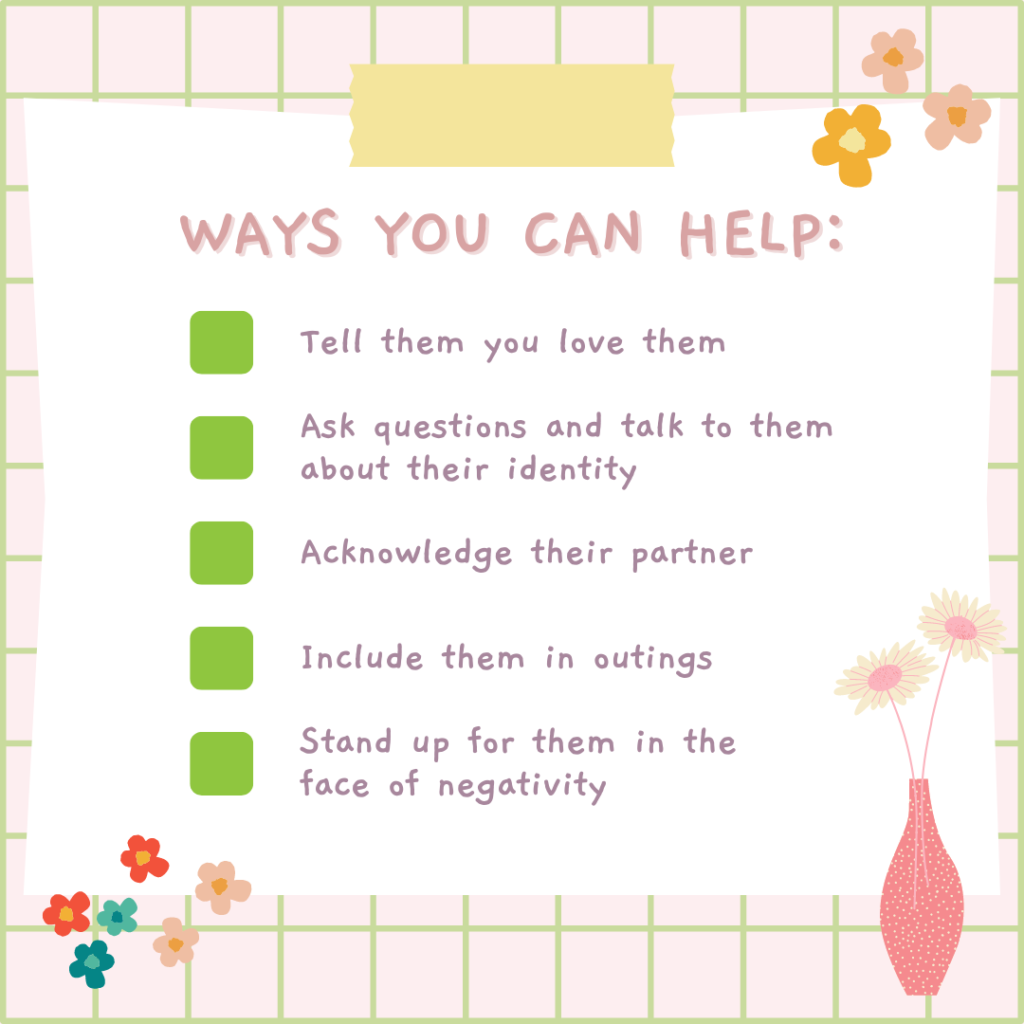
In recognition of June being designated as pride month, as a NAMI Mercer intern I would like to highlight some of the mental health struggles the LGBTQ+ community faces.
The coming out process can be a difficult and emotional experience for members of the LGBTQ+ community due both to difficulties with self-acceptance and uncertainty about the reactions of family and friends. Coming out is a lifelong process and if someone experiences rejection early on, it can prevent them from acknowledging their identity for a long time, leading to increased anguish and unhappiness, resulting in mental health issues. Rejection and/or a lack of understanding/support from loved ones can strain relationships and make the person trying to come out feel unloved.
Members of the LGB community are twice as likely as their straight counterparts to experience mental health issues and feelings of hopelessness; transgender individuals are nearly four times as likely as their cisgender counterparts to experience these issues. LGBTQ+ youth are also four times as likely as their straight counterparts to attempt suicide. Among the major risk factors associated with these mental health issues is receiving negative reactions upon coming out, as cited by The Trevor Project, a well-known suicide prevention organization for LGBTQ+ youth.
The most important thing loved ones can do to mitigate the risk of depression and suicide among members of the LGBTQ+ community is to be supportive during the coming out process, even if they have mixed feelings about this news. Parents can demonstrate support by actively listening to what their child is trying to tell them –without interruption, without finishing their thoughts for them. There’s a high likelihood that someone coming out has been thinking about their identity for years, and in this moment, they need to feel heard. They’ll be happy to answer any questions, provided they are asked in a respectful manner.
A psychiatrist at the Child Mind Institute notes, “when people feel loved and supported, they are more capable; they have greater resilience.” You can support a person coming out by treating them the way you did prior to their coming out, staying calm, getting to know their romantic partners, and educating yourself about this community. Helping someone feel loved is the most important thing you can ever do.
There are various resources online, available both to family members and LGBTQ+ individuals, to help them navigate the coming out process. Strong Family Alliance provides information and resources to LGBTQ+ people and their families. Their website details stages of coming out, how different parental actions can help or hurt an LGBTQ+ child, and the challenges parents and children may face after coming out. The Trevor Project is another valuable resource, as is a local LGBTQ+ center. Each person’s coming out experience is different but the need for love and support is common to everyone. Let’s make it a point to extend that love and support to anyone who needs it, this month and every month.
By NAMI Mercer Summer 2022 Intern Alexis
